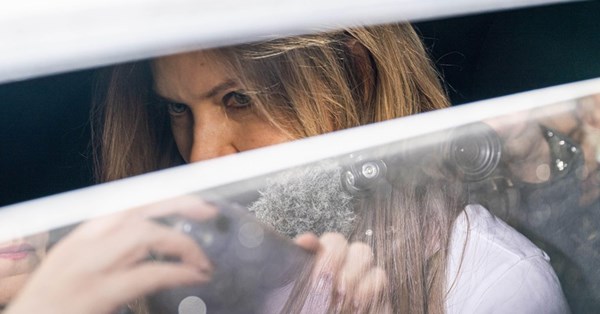
“THE European Parliament is under attack,” its President, Roberta Metsola, told members assembled in Strasburg for a plenary session on 12 December. “The enemies of democracy, for whom the very existence of this parliament is a threat, will stop at nothing. These malign actors . . . have allegedly weaponised NGOs, unions, and Members of the European Parliament in an effort to subdue our processes.”
Ms Metsola was speaking a few days after Belgian police made 20 co-ordinated raids in Brussels, which resulted in the arrest of four MEPs, who were subsequently charged with corruption and money-laundering. They included one of Ms Metsola’s deputies, the Greek Socialist MEP Eva Kaili, in whose home €150,000 in cash was discovered, without apparent explanation. On 13 December, Ms Kaili was removed from office as the European Parliament’s Vice-President by a vote of 625 to one.
The accused are alleged to have accepted bribes from the Qatari and Morocco governments, in exchange for advancing those countries’ interests in the European Parliament. The focus of their efforts, prosecutors claim, was deflecting allegations of human-rights abuses aired in both plenary sessions and powerful select committees. The scandal has been termed “Qatargate” after the foreign government chiefly impugned.
This strategy was pursed, prosecutors allege, to prevent the parliament’s and its committees’ blocking the development of improved trading relationships with Arab countries, subject to negotiation between the European Commission and the respective governments. Money was channelled, allegedly, through the ironically named front NGO Fight Impunity, which said that it promoted greater financial transparency in public life.
All four MEPs come from the Socialist and Democrats (S&D) Group in the European Parliament. They deny the allegations, as do the governments concerned. They have since been released on bail, or transferred to house arrest. At the time of writing, Ms Kaili remains under house arrest, pending her trial.
QATARGATE has shaken morale in EU institutions. The crisis hits hardest inside the S&D group. The targeting seems to be no accident: the strongest human-rights concerns about Qatar relate to deaths of migrant workers (estimates suggest 6500 since 2010). Consequently, there is an obvious logic to disabling potential criticism from the political bloc — Socialists — who are most concerned about labour rights.
Ms Kaili has praised Qatar as an international “front-runner” on labour rights, despite overwhelming evidence to the contrary — and pressed sceptical S&D MEPs to keep quiet. Some experienced odd procedural obstruction when trying to raise concerns in formal meetings. One of these was the Dutch socialist MEP Lara Walters, who is a long-time observer of Qatar issues. “For me personally, there’s a huge amount of anger and frustration,” she told the podcast EU Scream in February.
Trust in EU institutions is severely compromised among member states. The German Foreign Minister, Annalena Baerbock, has said that Qatargate means that “Europe’s credibility is at stake.”
IT WOULD be easy to see the significance of this scandal in secular terms, but that would be a mistake. Qatargate should cause us to pause and reflect on what the largesse of foreign governments sometimes achieves with Europe’s church leaders.
Arab states with abysmal labour conditions are prominent in Qatargate, but Central Asian ones, which have a poor record on freedom of religion or belief (FoRB), and where political opponents are murdered, woo Churches in the West.
Azerbaijan’s ill-treatment of religious minorities has caused it to be placed on a “Special Watch List” by the US State Department, on account of its government’s “oppressive control of religious groups and activities”. It has also carried out a well-documented policy of systematically erasing the physical traces of ancient Armenian Christian heritage within its borders by demolishing churches.
Securing plaudits from Europe’s church leaders and for Azeris’ “enlightened toleration” of selected groups has become a priority, to obscure the underlying truth, equivalent to Qatar’s wooing of the S&D over labour rights.
Since 2012, the Azeri government and its ruling family have donated substantial (but undisclosed) sums to restore Rome’s catacombs and the ceiling of the Sistine Chapel, while Azeri authorities have bulldozed churches in Nagorno-Karabakh. Pope Francis has remained oddly silent regarding Azerbaijan’s FoRB issues, but has praised its “tolerance” and exchanged state visits with its President, Ilham Aliyev.
The Pope is not alone. Church leaders of various denominations gathered in Nur-Sultan, the capital of Kazakhstan, last September, for the seventh Congress of Leaders of World and Traditional Religions, supported by lavish hospitality and a cultural programme (News, 23 September 2022). As far as we know, none raised concerns about the massacre of about 100 protesters by Russian troops, who had been called in to support Kazakstan’s government the previous January, nor about the mysterious disappearance of hundreds more snatched by the security forces during subsequent months.
Jesus said: “No one can serve two masters” (Matthew 6.24). It is a maxim that Christian leaders should remember when engaging with political leaders.
The Revd Alexander Faludy is a freelance journalist based in Budapest.






